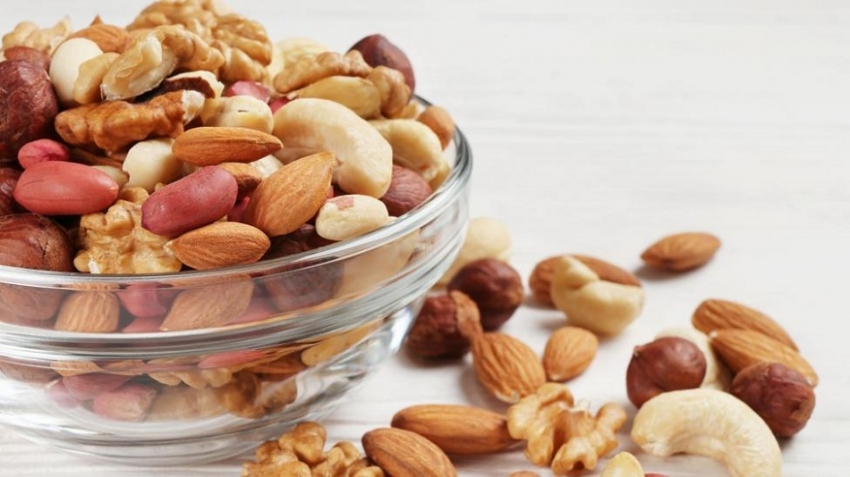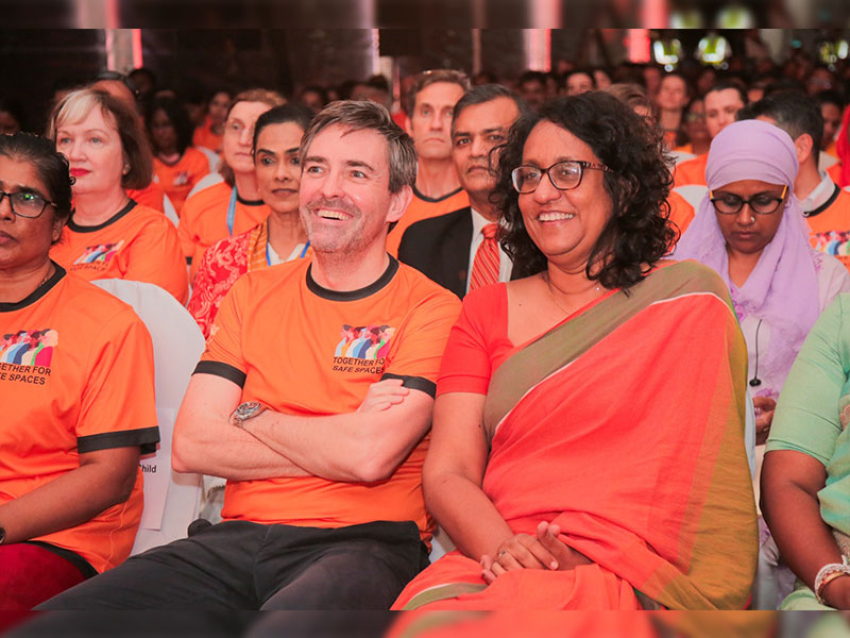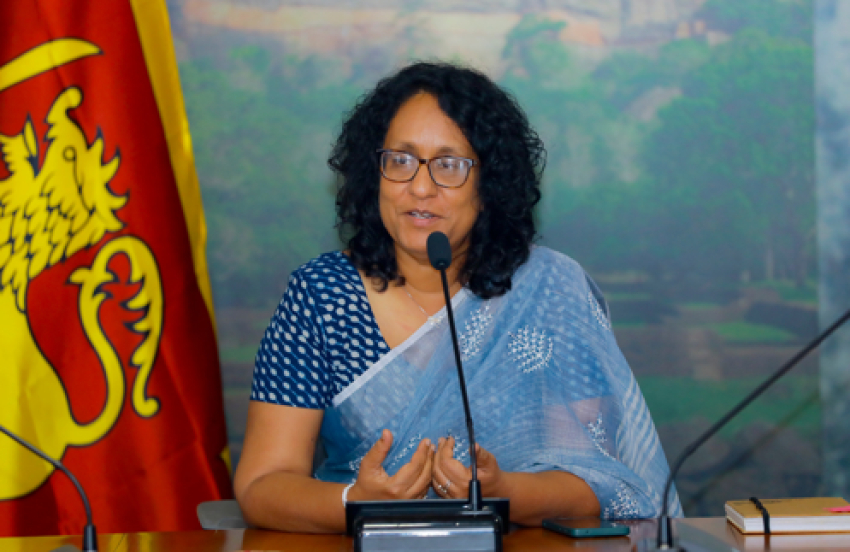The vegan diet is low in – or, in some cases, entirely devoid of – several important brain nutrients. Could these shortcomings be affecting vegans' abilities to think?
It was the late 1880s in the city of Rajkot, India. The meeting was to take place on the banks of the local river – and discretion was essential. Mahatma Gandhi, who was just a teenager at the time, hadn’t told his parents where he was going; if they had found out, they would have been shocked to death.
As it happens, Gandhi was having a picnic. And on this occasion, India’s future national hero – and one of the most famous vegetarians in history – wasn’t planning to dine on cucumber sandwiches. No, for the first time in his life, he was going to eat meat.
As he later wrote in his biography, Gandhi was raised as a strict Vaishnava Hindu, so he had never even seen meat before this fateful day. But his picnic companion was a shady character with an unusual obsession – the idea that meat held the key to being physically and mentally strong.In the end, Gandhi braved the meat. It was as tough as leather.
Vegan takeaway recipes
The idea that avoiding meat is bad for our brains makes some intuitive sense; anthropologists have been arguing about what our ancestors ate for decades, but many scientists think that there was a lot of bone-crunching and brain-slurping on the road to evolving these remarkable 1.4kg (3lb) organs. Some have even gone so far as to say that meat made us human.
One reason is that intelligence is expensive – the brain devours about 20% of our daily calories, though it accounts for just 2% of our body weight – and what better way to find the enormous array of fats, amino acids, vitamins and minerals these fastidious organs require, than by feasting on animals which have already painstakingly collected or made them.
Mahatma Gandhi, India's pioneering independence leader, even toyed with eating meat despite his vegetarian beliefs (Credit: Getty Images)
But though it’s hard to imagine our ancestors choosing turnips over tuna, today it’s a different story. According to the latest statistics, there are around 375 million vegetarians on the planet. In the West, veganism has ditched the hippie stigma to become one of the fastest-growing millennial trends; in the United States, it grew by 600% between 2014 and 2017. Meanwhile in India, meat-free diets have been mainstream since the 6th Century BCE.
On the one hand, recent concern about the nutritional gaps in plant-based diets has led to a number of alarming headlines, including a warning that they can stunt brain development and cause irreversible damage to a person’s nervous system. Back in 2016, the German Society for Nutrition went so far as to categorically state that – for children, pregnant or nursing women, and adolescents – vegan diets are not recommended, which has been backed up by a 2018 review of the research. In Belgium, forcing a vegan diet on your offspring could land you a spell in prison.
But on the other, if abstaining from meat had any real impact on our brains, you would think that we would already have noticed. So is it really damaging our intellects, or is this all just fear of the unknown?
Ideally, to test the impact of the vegan diet on the brain, you would take a randomly selected group of people, ask half to stop eating animal products – then see what happens. But there isn’t a single study like this.
There are several important brain nutrients that simply do not exist in plants or fungi
Instead, the only research that comes close involved the reverse. It was conducted on 555 Kenyan schoolchildren, who were fed one of three different types of soup – one with meat, one with milk, and one with oil – or no soup at all, as a snack over seven school terms. They were tested before and after, to see how their intelligence compared. Because of their economic circumstances, the majority of the children were de facto vegetarians at the start of the study.
Surprisingly, the children who were given the soup containing meat each day seemed to have a significant edge. By the end of the study, they outperformed all the other children on a test for non-verbal reasoning. Along with the children who received soup with added oil, they also did the best on a test of arithmetic ability. Of course, more research is needed to verify if this effect is real, and if it would also apply to adults in developed countries, too. But it does raise intriguing questions about whether veganism could be holding some people back.
In fact, there are several important brain nutrients that simply do not exist in plants or fungi. Creatine, carnosine, taurine, EPA and DHA omega-3 (the third kind can be found in plants), haem iron and vitamins B12 and D3 generally only occur naturally in foods derived from animal products, though they can be synthesised in the lab or extracted from non-animal sources such as algae, bacteria or lichen, and added to supplements.
Others are found in vegan foods, but only in meagre amounts; to get the minimum amount of vitamin B6 required each day (1.3 mg) from one of the richest plant sources, potatoes, you’d have to eat about five cups’ worth (equivalent to roughly 750g or 1.6lb). Delicious, but not particularly practical.
To get your daily requirement of vitamin b6, you would need to eat around 1.5lbs of potatoes (Credit: Getty Images)
And though the body can make some of these vital brain compounds from other ingredients in our diets, this ability isn’t usually enough to make up for these dietary cracks. For all of the nutrients listed above, vegetarians and vegans have been shown to have lower quantities in their bodies. In some cases, deficiency isn’t the exception – it’s completely normal.
For now, the impact these shortcomings are having on the lives of vegans is largely a mystery. But a trickle of recent studies have provided some clues – and they make for unsettling reading.
“I think there are some real repercussions to the fact that plant-based diets are taking off,” says Taylor Wallace, a food scientist and CEO of the nutrition consulting firm Think Healthy Group. “It’s not that plant-based is inherently bad, but I don't think we're educating people enough on, you know, the nutrients that are mostly derived from animal products.”
One of the most well-known challenges for vegans is getting enough vitamin B12, which is only found in animal products like eggs and meat. Other species acquire it from bacteria which live in their digestive tracts or faeces; they either absorb it directly or ingest it by snacking on their own poo, but unfortunately (or fortunately, depending on how you look at it) humans can’t do either.
Later in life, the amount of B12 in a person’s blood has been directly correlated with their IQ
“There are some tragic cases of children whose brains failed to develop because of their parents being ill-informed vegans,” says David Benton, who studies the link between our diets and brain chemistry at Swansea University. In one example, the child was unable to sit or smile. In another, they slipped into a coma.
Later in life, the amount of B12 in a person’s blood has been directly correlated with their IQ. In the elderly, one study found that the brains of those with lower B12 were six times more likely to be shrinking.
Even so, low B12 is widespread in vegans. One British study found that half of the vegans in their sample were deficient. In some parts of India, the problem is endemic – possibly as a consequence of the popularity of meat-free diets.
Another nutrient that’s scarce in the typical vegan diet is iron. Though we often associate it with blood, iron also plays prominent role in brain development, and is essential for keeping the organ healthy throughout our lives. For example, one 2007 study found that giving young women iron supplements led to significant intellectual gains. In those whose blood iron levels increased over the course of the study, their performance on a cognitive test improved between five- and seven-fold, while participants whose haemoglobin levels went up experienced gains in their processing speed.
It is important for vegans to take supplements to replace the essential elements found in animal products, experts say (Credit: Getty Images)
It’s surprisingly easy to slip into iron deficiency, even though it makes up 80% of the inner mass of the planet we live on. Up to two billion people are thought to have a shortage of the element worldwide, making it the most common nutritional inadequacy. Vegans are particularly prone, because the form that’s most readily absorbed by the body is “haem iron”, which is only found in animal proteins. One German study found that 40% of the vegans they looked at were consuming less than the recommended daily amount.
Other common deficiencies among vegans include D3, omega-3, selenium, folate and iodine. Though the body can make D3 when the skin is exposed to sunshine, this doesn’t make up for the extra that vegans are missing from their diets. In the winter months, when the sun is weaker, omnivores living in the UK have nearly 40% more vitamin D3 in their blood than vegans.
Of course, some of these things can easily be acquired from supplements. But others are so obscure, vegans are unlikely to have even heard of them – let alone realise they could be missing out.
The holes in our current understanding of what the brain needs to be healthy could potentially be a major problem for vegans
One example is taurine. This enigmatic amino acid is one of the most plentiful in the human brain, where it’s thought to underpin several important processes, such as regulating the number of neurons. It’s often added to caffeinated energy drinks, because of the (possibly mistaken) belief that it can provide an immediate cognitive boost.
Though there are small amounts of taurine in some dairy products, the main dietary sources are meat and seafood. “Some species have the ability to make all the taurine they need,” says Jang-Yen Wu, a biomedical scientist at Florida Atlantic University. “But humans have a very limited capacity to do this.”
For this reason, vegans tend to have less taurine in their bodies. No one has looked into how this might be affecting their cognitive abilities yet, but based on what we know about its role in the brain, Wu says vegans should be taking taurine tablets. “People can become deficient when they restrict their diets, because vegetables have no taurine content,” he says.
In fact, the holes in our current understanding of what the brain needs to be healthy could potentially be a major problem for vegans, since it’s hard to artificially add a nutrient to your diet, if scientists haven’t discovered its worth yet.
It's hard to artificially add a nutrient to your diet, if scientists haven’t discovered its worth yet (Credit: Getty Images)
“There are so many unknowns,” says Nathan Cofnas, a biologist from Oxford University. “And when you deviate from the typical diet for your species, to one which has not been tested and properly established to be healthy or good for the brain, you are conducting an experiment and you are taking a risk.”
Take choline: in the brain, it’s used to make acetylcholine, which is involved in a number of tasks, including relaying messages between nerve cells. It’s fundamental to our ability to think – even insects have it in their tiny brains – and the body can’t produce enough of it on its own.
And yet: “It’s a very understudied nutrient,” says Wallace. “I believe we've only considered it essential [something you have to get from your diet] since the late 1990s.”
Recently creatine has started to attract a fanbase as a smart drug
There are small amounts of choline in lots of vegan staples, but among the richest sources are eggs, beef and seafood. In fact, even with a normal diet, 90% of Americans don’t consume enough. According to unpublished research by Wallace, vegetarians have the lowest intakes of any demographic. “They have extremely low levels of choline, to the point where it might be concerning,” he says.
For vegans, the picture is likely to be bleaker still, since people who eat eggs tend to have almost double the choline levels of those who don’t. And though the US authorities have set suggested intakes, they might be way off.
Wallace points to a 2018 study, which found that the babies of women who consumed twice the amount considered “adequate” – around 930mg each day – in the last third of pregnancy enjoyed a lasting cognitive edge. For comparison, the average vegetarian gets roughly a fifth of that amount.
Vegans can get the protein they need from alternatives such as soya, but it won't give them essential elements such as choline and creatine (Credit: Getty Images)
In other cases, our understanding is even murkier.
The latest nutrient in question is creatine – a white, powdery substance often found in fitness shakes. Its natural function in the body is to supply our cells with energy, so it’s revered by gym obsessives as a way to improve their endurance.
But it’s also important to the brain – and studies have shown that increasing your intake can provide a range of benefits, such as a better recognition memory and reduced mental fatigue. Recently it’s started to gain traction as a smart drug.
It’s well-established that vegans and vegetarians have significantly lower levels in their bodies, because plants and fungi don’t contain any.
This has led scientists to wonder whether a creatine deficit could be holding some people back. For one study, researchers tested how the intelligence of vegetarians and omnivores changed after five days on supplements. “We found that the vegetarians seemed to benefit particularly,” says David Benton from Swansea University, who led the research.
In contrast, the omnivores were relatively unaffected. This hints that, unlike the vegetarians, they already had the appropriate amount of creatine in their brains.
It can make quite a substantial difference in your life, whether your intelligence is one standard deviation above the mean or two – Nathan Cofnas
However, Caroline Rae, who led another study, says there isn’t enough evidence to back taking creatine yet. It may come with unintended consequences, such as reducing the brain’s ability to make its own – leading to “creatine withdrawal”. “I’ve always hypothesised that it could be useful if you wanted to cram for an exam, but it would be interesting to see if people then got slower after they stopped.”
Finally, the brain largely makes its own supply, so it’s not clear if vegans actually need any extra. Instead of being a major source, the creatine in our diets might only be used by the brain in “extreme” conditions, like when we’re stressed.
Creatine, carnosine, taurine, omega-3, heme iron and vitamins B12 and D3 only occur naturally in foods made from animal products (Credit: Getty Images)
Nevertheless, Cofnas finds the potential creatine deficits in vegans disturbing. “It can make quite a substantial difference in your life, whether your intelligence is one standard deviation above the mean or two,” he says, referring to the small-yet-significant intellectual gains made by vegetarians on creatine supplements.
So what’s the verdict?
“I think we need a lot more research into vegan nutrition and health,” says Heather Russell, a dietitian from The Vegan Society. “As far as we can tell, it’s possible to lead a healthy life as a vegan – certainly there are people who thrive on a vegan diet.” Though it’s important to take supplements, she explains that a person’s cardiovascular and brain health are inextricably linked, and vegans tend to have healthier hearts.
“I tell people all the time, if you're going to be a vegan or vegetarian, that's fine,” says Wallace. “I’m certainly not advocating against it. But there are 40 or something essential nutrients. So, I mean, it really would take a lot of research for vegans to get everything the brain needs,” he says. Some nutrients that a typical vegan diet is low or lacking in, like choline, creatine, carnosine and taurine, are extremely bulky, so just taking a standard vitamin tablet won’t be enough. Instead, they need to be taken individually.
Without question, veganism can cause B12 and iron deficiencies, and without question they affect your intelligence – Nathan Cofnas
Benton agrees. “I’m sure that if you are knowledgeable, careful, and obsessive about it – and you have all the right personality characteristics to be this way – then it is possible to have a healthy diet as a vegan,” he says. “But it is distinctly possible that you could have deficiencies.”
Cofnas takes a harsher view. Though vegans can take supplements, he thinks it’s unrealistic to expect that they all will. Consequently, he finds the recent shift towards plant-based diets troubling, though he’s sympathetic to the arguments for doing so. “Without question, veganism can cause B12 and iron deficiencies, and without question they affect your intelligence,” he says.
As for Gandhi, he eventually abandoned his illicit relationship with meat, and went back to vegetarianism. But his experiments with nutrition didn’t end there. He also ditched salt, then went back to it, and attempted veganism – though after a bout of dysentery practically reduced him to a living skeleton, he decided that milk products were necessary, in order for a person to be healthy.
Whatever the truth is, isn’t it about time we found out?
An earlier version of this article stated omega-3 generally only occurs in animal products. The article has been corrected to make clear there are three types of omega-3 fatty acids and that one of these, ALA, can be found in plants.
--
Join one million Future fans by liking us on Facebook, or follow us on Twitter or Instagram.
If you liked this story, sign up for the weekly bbc.com features newsletter, called “The Essential List”. A handpicked selection of stories from BBC Future, Culture, Worklife, and Travel, delivered to your inbox every Friday.
Share on Facebook
Share on Twitter
Share on Linkedin
Share using Email
Open share tools
Like us on Facebook
Follow us on Twitter
Follow us on Instagram
Sign up to our newsletter
SIMILAR ARTICLES
Could red apples die out?
The microscopic mystery in sourdough
The man who discovered umami
A data chain to clean up seafood
YOU'RE READING
Why vegan junk food may be even worse for your health
THE VEGAN FACTOR
FOOD
Share on Facebook
Share on Twitter
Share on Linkedin
Share using Email
Open share tools
SIMILAR ARTICLES
Could red apples die out?
The microscopic mystery in sourdough
The man who discovered umami
A data chain to clean up seafood
While we might switch to a plant-based diet with the best intentions, the unseen risks of vegan fast foods might not show up for years.
Author image
By William Park
29th January 2020
N
No British train station or high street would be complete without a Greggs bakery. The merchants of mass-produced pastries are as quintessential as they come. And last year they won plaudits for turning vegan. On the back of their success, other fast food brands shortly followed suit.
In fact, Greggs’s vegan sausage rolls have been so successful, the company announced a “phenomenal year” for sales in 2019 driven in part by their new product and that they would share a £7m ($9.17m) bonus equally between staff.
Like the sausage roll, another staple of British fast food, fish and chips, has had a vegan make-over. Replacing cod or haddock with the plant-based tofu (sometimes also with a layer of crispy nori seaweed to create the effect of fish skin), vegans can now enjoy “tofish” with their chips.
Read more from The Vegan Factor on BBC Good Food
Is going vegan better for the planet?
Vegan takeaway recipes
They might sound like a guilt-free alternative or a gateway for the vegan-curious, but vegan fast food alternatives are often worse for your health than the meat equivalent.
“Obviously the pros are that [veganism] is getting people to think about plant-based foods, but the con is that it makes us think that it is good for you when it can be equally or more unhealthy,” says Megan Rossi, a dietician at King’s College London and author of Eat Yourself Healthy.
“Tofu contains omega 3 but it is a type that is not as active as animal sources,” says Rossi. Plant-based sources contain a type of omega 3 called alpha-linolenic acid (ALA). For our bodies to be able to do anything particularly useful with ALA, we need to convert it into eicosapentaenoic acid (EPA) or docosahexaenoic acid (DHA). However, humans are not particularly well equipped to do this.
Salt is added to vegan fast foods to give the same meaty, rewarding sensation that would otherwise be missing (Credit: Getty Images)
It is DHA that is responsible for the much-celebrated brain boosting properties of omega 3, while EPA has been linked to reduced symptoms of depression. Both are found in high quantities in fatty fish oils. There are some non-animal sources of useful EPA and DHA, like algae oil, that are available as supplements.
Meat-free menus
One alternative that seems to be on every menu during Veganury is jackfruit. The ripe fruit has a sweet taste, which hints at its close relation to the fig, but the unripe fruit is savoury and has a fleshy texture. This fleshiness makes it a convincing choice for pulled pork alternatives, curries and burgers.
The issue is jackfruit is quite nutritionally valueless if it's protein you're wanting. It is mostly made up of carbohydrates and contains almost no protein. As a replacement for meat, it is not the best choice.
Even other plant-based protein sources are of a lesser quality than animal protein sources, says dietician Rachel Clarkson. “Proteins are made up of amino acids which are the building blocks of every cell and hormone in our body. However, most plants do not contain good amounts of all essential amino acids.”
If you go long-term as a vegan, food pairing is going to be important – Megan Rossi
Plant-based protein sources usually lack at least one of the nine essential amino acids – the amino acids that the human body needs, but is unable to synthesise and so has to source from our diet. This means that vegans either need to carefully balance their proteins so that they complement each other, or supplement their diet from elsewhere. However, meat, egg and dairy products are considered “complete” because they contain all nine essential amino acids.
“If your protein diet is made up of lentils and beans, you would be getting some but not all of them,” says Clarkson. “Vegan burgers are often made up of beans, but this is not a complete source. One great product is soy because it is high in quality protein. That would be my go-to protein.”
Another discrepancy between the quality of animal- and plant-based foods is in their iron content. While plenty of plants, like whole grains, legumes and spinach are high in iron, once again, it is not always the best type. Animal sources contain haem iron, whereas plants contain non-haem iron. Non-haem is not as well absorbed by the body. Being iron deficient is a problem, particularly for women whose iron requirement for menstruation is higher.
In a meta-analysis of research of iron deficiency in vegetarians, vegans and omnivores, vegans (and in particular women) come out as the highest risk group. One study found that 25% of vegans had very low blood iron levels, compared to 3% of vegetarians and 0% of omnivores. Even more moderate iron deficiencies affect vegans more (30%, compared to 21% of vegetarians and 0% of omnivores).
Tasty, crunchy vegan food that apes our fast food favourites might be a gateway to a vegan diet (Credit: Getty Images)
“If you go long-term as a vegan, food pairing is going to be important,” says Rossi. Some foods contain chemicals whose properties improve absorption rates of chemicals in other foods. Adding vitamin C, for example, while eating a non-haem iron source improves our ability to absorb it. Rossi gives the example of using a tomato base, rich in vitamin C, when cooking with lentils.
One also needs to consider what is added to vegan fast food to make it as rewarding and fulfilling as meat equivalents. A vegan burger from KFC in the UK, for example, contains 2.91g of salt compared to 2.02g for their fillet burger or 1.97g for the Zinger burger. There is also more sugar and carbohydrates, and less protein in the vegan burger.
Salt is sometimes added to foods as a preservative, but there is also something fundamentally rewarding about salty food, says Clarkson. Salt is added to vegan fast foods to give the same meaty, rewarding sensation that would otherwise be missing. Issues arise, though, when you consider that some people are less able than others to process salt due to their genetics.
Genetic variations in a gene called ACE predispose around seven in 10 of us to increased blood pressure when salt intake is high. These people need to limit their daily salt intake to 4g (compared to the 6g recommended by the NHS in the UK) to help reduce their risk of high blood pressure, says Clarkson who is a specialist in nutrigenomic testing. A Greggs vegan sausage roll contains 1.9g of salt.
Cheese is extra
No vegan burger would be complete without a slice of vegan cheese. But would we be better off eating the real thing?
““Having small amounts of cheeses in your diet [can be] good for your body",” says Rossi. “Cheese is fermented by bacteria that produce peptides which are beneficial in our bodies. She says most vegan cheeses are not fermented but “they are calorific but have [degraded] nutrients”.
One day that plaque may be pulled off the side of your artery and that is where you get a heart attack or stroke – Rachel Clarkson
Burger cheese, even at the best of times, can be limp, pale and flavourless – what some might generously describe as “American style”. The chemistry of vegan cheese makes it ideal for replicating this texture. But it is also one reason that vegan cheese can be surprisingly unhealthy.
Coconut oil is frequently the fat of choice in vegan cheese alternatives. The main reason for this is that cheese needs to be solid at room temperature and other plant-based fats are liquid (palm oil is another alternative that is solid at room temperature). This is because coconut oil is very high in saturated fats. In fact, it has higher levels than animal fats.
“This is worrying because what sat fat does is increase LDL [low-density lipoprotein] cholesterol which is responsible for fatty plaque build-up in arteries,” says Clarkson. “One day that plaque may be pulled off the side of your artery and that is where you get a heart attack or stroke.”
Jackfruit mimics the texture of slow cooked meats such as pork - but doesn't contain much protein (Credit: Getty Images)
Olive oil, on the other hand, is high in high-density lipoproteins (HDL). This type of cholesterol lowers risk of fatty plaque buildups helping to transport LDLs to the liver where they can be removed.
Generally dairy products are also a good source of B12, but plant sources of B12 are less easily taken up by the body. “Some people have a genetic variation that makes them poor absorbers and transporters of B12 from cell to cell,” says Clarkson. “I am quite plant-based. My genetic test showed me that I have an increased risk of B12 deficiency. I thought I was fine because I have low-fat cheese, fortified nut milk. When I took my blood test I was low in B12 and I am a nutrition professional. You might think you are doing the right thing but your blood says something else.”
The spillover effect
Being able to make an easy substitution between a meat and plant-based fast food might make transitioning to a vegan diet easier. Certainly it could be a gateway for many people to try new vegan alternatives. So the ready availability of vegan foods in pubs, restaurants and fast food outlets could be a good thing if diners then continue to learn about plant-based foods and look for other alternatives for the rest of their diet.
“In order for a behaviour change to be successful you should start small and build on an existing behaviour,” says Stephanie Stanton-Fay, a behavioural scientist from University College London who specialises in health psychology. “Anything that makes it less effort is morale-boosting, so integrate it into a routine that you already have.
But what if someone decides to try vegan alternatives for health reasons, only to find that their diet is not working?
“One concept we talk about is spillover: If someone makes a behavior change there is the likelihood that that change will spill over into other behaviours where there is a common link. If you switch to vegan sausages, for example. Okay, what else is similar? Maybe they will try other meat products, or things in a similar category, like cheese.”
But what if someone decides to try vegan alternatives for health reasons, only to find that their diet is not working? Other diets, like cutting out sugars or calorie counting, can be reasonably clear cut, says Stanton-Fay – there are simple calculations to determine how many calories you should be consuming, for example.
“Something like sugar is particularly demonised in recent months and years; there is a clear evidence base to reduce or cut it out,” says Stanton-Fay. Whereas the health risks associated with meat products are much less clear.
The health risks associated with the nutrient deficiencies from vegan fast food might not show up immediately (Credit: Getty Images)
“It is also reasonably clear cut on what contains sugar – it is easy to tell. With vegan food there is the component of eating sustainably and purchasing foods that are compatible with environmental issues. It is more complex because what might start as a health drive becomes mixed up with all of these other factors,” says Stanton-Fay.
There’s also the concern that the health risks associated with these kinds of nutrient deficiencies might not show up immediately. It could take years to associate foggy thoughts and tiredness with low B12 levels, infertility with low iron, and osteoporosis brought on by calcium deficiency does not show up until late 40s and 50s in most people, says Rossi.
“People will think about their health now and not their future health,” she says. “With the link between omega 3 and depression, there might be a slight risk but some people can handle less and some people need more. Some people feel great and other people require higher concentrations.”
So, while you might reach for that plant-based burger with the best of intentions, remember exactly what it is – fast food – and be prepared for the fact that it might even be worse for you than its meaty cousin.
--
Join one million Future fans by liking us on Facebook, or follow us on Twitter or Instagram.
If you liked this story, sign up for the weekly bbc.com features newsletter, called “The Essential List”. A handpicked selection of stories from BBC Future, Culture, Worklife, and Travel, delivered to your inbox every Friday.
Share on Facebook
Share on Twitter
Share on Linkedin
Share using Email
Open share tools
Like us on Facebook
Follow us on Twitter
Follow us on Instagram
Sign up to our newsletter
SIMILAR ARTICLES
Could red apples die out?
The microscopic mystery in sourdough
The man who discovered umami
A data chain to clean up seafood
YOU'RE READING
Are there health benefits to going vegan?
THE VEGAN FACTOR
FOOD
Share on Facebook
Share on Twitter
Share on Linkedin
Share using Email
Open share tools
SIMILAR ARTICLES
Could red apples die out?
The microscopic mystery in sourdough
The man who discovered umami
A data chain to clean up seafood
More and more people are eating vegan meals – and part of the reason is it’s seen as healthier. Is it really better for you? In the first of a new vegan series on BBC Future and BBC Good Food, Jessica Brown looks at the evidence.
Author image
By Jessica Brown
23rd January 2020
T
The number of people cutting down on meat and dairy, or cutting these foods from their diets entirely, has been rising over the last decade. The number of vegans in the UK, for example, quadrupled between 2006 and 2018, according to research by The Vegan Society.
One common motivation for shunning steak and stilton and going vegan is the promised health benefits. The vegan diet is generally considered to be higher in fibre and lower in cholesterol, protein, calcium and salt than an omnivorous diet – but there are still misconceptions and concerns around cutting meat, fish, eggs and dairy completely from our diets.
One common concern is whether a vegan diet provides enough vitamin B12. B12 helps prevent nerve damage, and is found in meat, fish, eggs and dairy, but not in fruit or vegetables. It's recommended that adults consume 1.5 micrograms of the vitamin per day.
“A B12 deficiency can lead to neurological symptoms such as numbness, and it’s irreversible if the deficiency is present for too long,” says Janet Cade, of the Nutritional Epidemiology Group, School of Food Science and Nutrition.
Read more from The Vegan Factor on BBC Good Food
Is going vegan better for the planet?
Vegan takeaway recipes
A recent study involving 48,000 people over 18 years compared the health of meat-eaters, pescatarians – who eat fish and dairy but not meat – and vegetarians, including some vegans. They found that people who eat vegan and vegetarian diets have a lower risk of heart disease, but a higher risk of stroke, possibly partly due to a lack of B12.
The researchers found that those who didn’t eat meat had 10 fewer cases of heart disease and three more strokes per 1,000 people compared with the meat-eaters. Researcher Tammy Tong, nutritional epidemiologist at the University of Oxford, says the higher risk of haemorrhagic stroke could be for several reasons.
Haemorrhagic stroke is caused by a bleeding in the brain. While low cholesterol is protective for heart disease and ischemic stroke, there’s some evidence showing that low cholesterol levels (associated with the vegan and vegetarian diet) may be linked to a small risk of haemorrhagic stroke.
People who eat vegan or vegetarian diets tend to have a lower risk of developing heart disease (Credit: Getty Images)
“Vegans and vegetarians also have a higher risk of B12 deficiency, which may be linked to higher risk of stroke,” she says.
But it’s easy to get the “minuscule” amount of B12 we need from nutritional yeast or fortified food, such as plant-based milks, says Marco Springmann, senior researcher of environmental sustainability and public health at the University of Oxford.
In countries where food isn’t fortified with B12, he recommends vitamin supplements. However, the Academy of Nutrition and Dietetics states that nutritional yeast isn’t an adequate source of B12, and vegans must take supplements or eat fortified food.
Cade also recommends that vegans take B12 supplements, and ensure any children and babies being fed a vegan diet get enough B12.
It’s unlikely a vegan diet will cause an iron deficiency, says Springman, as long as your diet includes fruit and vegetables of every colour
Another common concern for those tempted to transition is whether a vegan diet provides enough protein. But while there isn’t much protein in fruits and vegetables, Springmann says, this isn’t cause for concern.
“We’ve never [seen] issues with protein deficiencies, only in people who don’t eat enough calories, he says. “Protein is in everything.”
For those who are concerned, soy milk has roughly the same amount of protein as cow’s milk. (Find out more about how much protein we really need).
It’s also it’s unlikely a vegan diet will cause an iron deficiency, says Springman, as long as your diet includes fruit and vegetables of every colour.
“Over time, the body can adapt to how much iron there is in our diet, and if you have a lower iron intake it can make more efficient use of that iron,” he says.
Springman says a balanced vegan diet is one of the healthiest diets.
The vegan diet is thought to be one of the healthiest because it includes plenty of legumes aswell as fruit and vegetables (Credit: Getty Images)
“We’ve found that the vegan diet could be one of the healthiest diets, outperforming pescatarian and vegetarian, because the vegan diet is higher in fruit, vegetables and legumes and the health benefits from this compensate anything else,” says Springman.
He advises eating plenty of fruit and vegetables with a variety of colours, nuts, wholegrains and beans and lentils, as well as chia, hemp and flax seeds, which contain omega 3.
For those who worry that the vegan diet doesn’t offer enough variety, one study in 2018 found no evidence that a more varied diet promotes a healthier diet or weight. In fact, they found that those who ate a more diverse diet tended to eat more processed foods and sugary drinks.
Speaking of unhealthy foods, Springman is concerned about the rising popularity of vegan junk food. “These junk food vegan replacements can give you the same consumption profile as an unhealthy omnivore,” he says.
People who ate more fruit and vegetables generally ate less red and processed meat, dairy and fish
But this doesn’t have to be the case. In a recent study looking at the effects of a diet high in plants, but not strictly vegan, researchers used indexes that ranked people according to how much of their diet consisted of plant-based foods, compared to animal foods. Even those who ate the most plant-based foods also ate some dairy, fish and meat.
Those who had the most plant-based diets, and lower intakes of animal products, scored better on health markers. There was up to a 32% lower risk among those with the highest intake of plant-based foods for cardiovascular disease, after adjusting for age, sex, race, education and health behaviours such as smoking, alcohol intake and exercise.
“We found a striking relationship between adherence to dietary patterns and risk of important clinical outcomes,” says study author Casey Rebholz, an assistant professor at the John Hopkins Bloomberg School of Public Health's in Baltimore.
Eggs are a major source of vitamin B12, which the vegan diet lacks (Credit: Getty Images)
She found that people who ate more fruit and vegetables generally ate less red and processed meat, dairy and fish. However, the research doesn’t confirm if the relationship between eating more plant-based foods and a lower risk of heart disease drops off at a certain point. In other words, it didn’t prove whether a strictly vegan diet is any more beneficial than a diet made up mostly of fruit and vegetables, but with some animal products.
“It’s what a plant-based diet gives you, and the food it generally steers you way from, that’s beneficial,” says Casey.
“I believe that the health benefits from a plant-based diet are from a combination of eating more fruit and vegetables, and lower amounts of animal foods, including saturated fat.” (Find out more about how saturated fat affects your health).
Typically, vegans smoke less, drink less alcohol and exercise more - Faidon Magkos
Researchers are concerned that a lot of research comparing the vegan diet and health outcomes (also known as observational research) is unreliable, since vegans tend to be healthier.
“Typically, vegans smoke less, drink less alcohol and exercise more,” says Faidon Magkos, associate professor at the University of Copenhagen's department of nutrition, exercise and sports, who last year published a review into research examining the health effects of the vegan diet.
These lifestyle factors, which can also contribute to a lower risk of heart disease and mortality, can suggest that the vegan diet alone is healthier than it may actually be. These studies serve as a starting point, says Faidon, and because most data on veganism is observation, there are still uncertainties around the vegan diet, particularly when it comes to long-term effects.
While higher blood glucose could indicate a higher risk of developing diabetes, for example, this isn’t necessarily the case.
Vegetarians don't get protein deficiencies because many plant-based foods contain protein (Credit: Getty Images)
To see if a dietary change affects health, you’d have to follow participants for long enough to develop disease outcomes, with intervention studies that are at least a year long,” says Faidon.
Evelyn Medawar, author of a review of randomised controlled trials looking at the metabolic benefits of a plant-based diet, says it’s really important that more researchers start looking at the health effects of the diet.
“As the moment, society is ahead of research when it comes to the vegan diet,” she says.
“Lots of people have doubts about the vegan diet due to potential nutrient deficiencies, and only now are researchers looking into this and the long-term benefits and risks.
The vegan diet seems to be linked to better general health, apart from bone density and fractures
“We need to take these fears away, or get to know the long-term consequences. This could make more people interested in taking up the vegan diet for health reasons.”
It will take a couple of years, Medawar says, before research is done to understand the mechanisms behind how a vegan diet affects our health, as it will require controlled studies.
But despite the lack of data on the vegan diet specifically, researchers say existing evidence on diet and health generally points to a few trends.
While the evidence isn’t very strong for the vegan diet specifically, Cade says, the vegan diet seems to be linked to better general health, apart from bone density and fractures, which may be more common due to possible lower calcium intake, and the likelihood of B12 deficiency. (Read more about whether we should drink dairy milk to strengthen bones).
Vegans have a lower body mass index (BMI) which means better cholesterol levels and lower blood pressure, which is a major risk factor for heart disease.
Flax seed is rich in essential omega 3, which a vegan diet can lack (Credit: Getty Images)
The vegan diet is much like any other. It can help to lower your risk of disease, or increase it – depending on the foods you eat.
“If you compare a plant-based diet with an unhealthy diet that includes meat, the plant-based diet is certainly better,” Faidon says.
“But if you follow a relatively prudent omnivorous diet, such as the Mediterranean diet, which is high in fruit, vegetables, legumes and low in meat, there’s evidence to suggest this type of omnivorous diet is at least as healthy as a vegan diet,” he says.
There’s a lot more digging to be done before we know for certain if veganism can be healthier than any other diet – especially when it comes to long-term health effects. In the meantime, experts advise that the best vegan diet is one that includes lots of fruit and vegetables, and B12 supplements, and less vegan junk food.
--



















